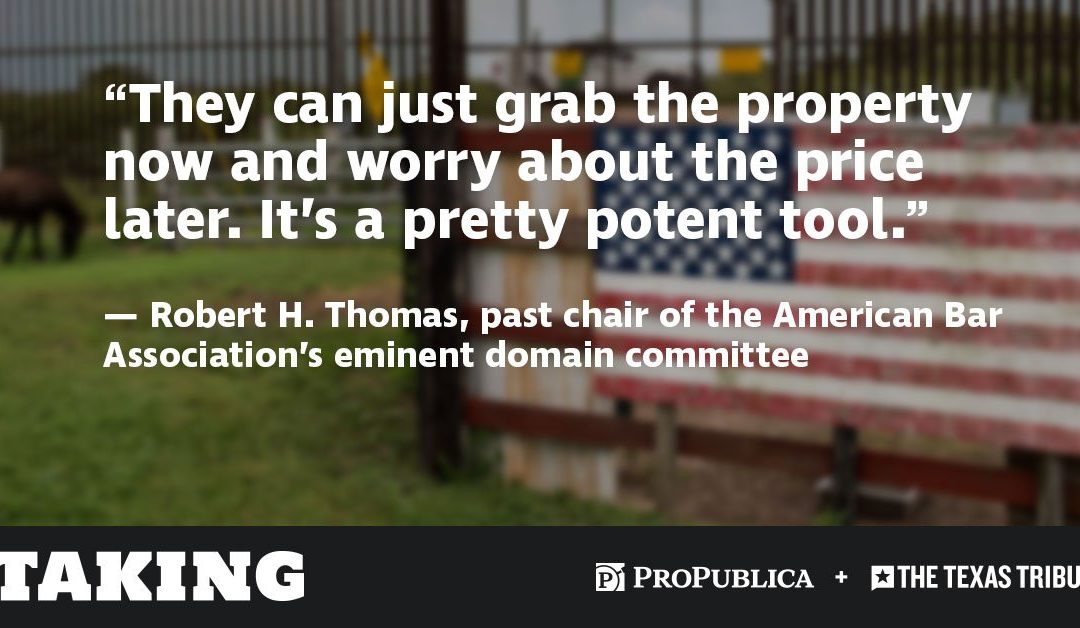Damon Key’s Robert Thomas served as a source for ProPublica‘s and The Texas Tribune‘s recent series of eminent domain. ProPublica, which holds itself out as “an independent, nonprofit newsroom that produces investigative journalism with moral force,” has published a series of stories focused on the border wall.
The first piece in the series, “The Taking,” is a tour-de-force. It quickly traces the history of eminent domain (stretching back to Magna Carta, even), and rightly focuses on how the power of eminent domain has been used to take property from the politically powerless, detailing James Baldwin’s famous comment to U.S. Attorney General Robert Kennedy in the 1960’s that “blight removal” was in fact “negro removal.” Kelo is there, of course, as are the post-Kelo reforms. Even the Yellow Book gets a shout out.
But the focus of this series is the border wall, and efforts to build a fence during previous presidential administrations. The Taking details the uneven results, unfair process, lowballing, lack of plans, and general juggernaut that eminent domain entails:
By using a so-called quick-take, a federal agency gained title to a person’s property on the same day it filed a declaration of taking in court. The bulldozers could roll as soon as a judge approved an order to possess the land. The landowner was almost powerless to stop the process.To balance this muscular exercise of sovereign power, the law required the government to immediately deposit a check with the court to pay the landholder. The amount was supposed to be the fair market value, the amount that a willing buyer would pay a willing seller. The landowner could take the money, but also could try to convince the government to pay more — a process that could take years.
“They can just grab the property now and worry about the price later,” said Robert H. Thomas, past chair of the American Bar Association’s eminent domain committee. “It’s a pretty potent tool.”
But not powerful enough for Homeland Security. The agency deployed a second tool to make it easier and faster to seize land. It issued a waiver that eviscerated a federal law designed to protect property owners from unfair seizures.
While current opposition to the border wall is, in our view, mostly focused on the Trump Administration (there wasn’t much of the same hue and cry when the Bush II and Obama Administrations did pretty much the same thing), the objections to eminent domain should (and sometimes do) cut across partisan lines, as in Kelo. because of the unfairness that is built into the system.
Read the piece, and follow along with the series. The second chapter, “A Border Wall’s Uncompensated Victims” is next.

